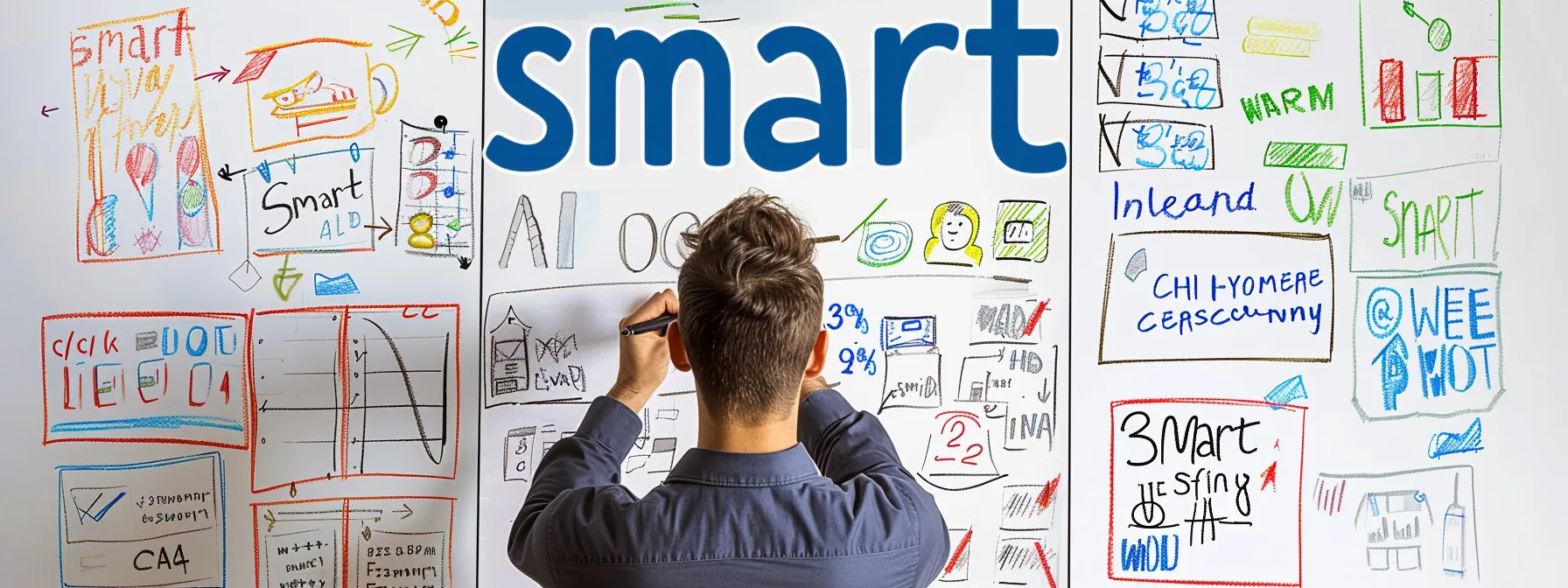PGI
Transform Your Life With Proven Strategies for Beating Procrastination
Table Of Contents:
- Understanding Procrastination and Its Effects on Your Life
- Identifying Personal Triggers That Lead to Procrastination
- Setting Clear and Attainable Goals
- Implementing Effective Time Management Strategies
- Building Self-Discipline and Maintaining Motivation
- Adopting Mindfulness and Stress-Reduction Techniques
Do you often find yourself putting off important tasks, despite knowing the consequences? Procrastination can turn your goals into distant dreams and diminish your sense of discipline. In this article, you will learn proven strategies for beating procrastination by understanding its effects, identifying your personal triggers, and implementing effective time management techniques. By engaging with this content, you’ll gain practical tools to transform your reality, cultivate a focused mind, and incorporate practices like meditation to maintain motivation. Say goodbye to missed deadlines and hello to achieving your goals with confidence.
Understanding Procrastination and Its Effects on Your Life

Recognizing the signs of procrastination is crucial for initiating change. Understanding the psychological factors such as fear and distraction can illuminate why you delay tasks. Additionally, you will explore how procrastination negatively impacts your mental well-being and creates a ripple effect on your personal and professional goals. This insight is essential for adopting effective strategies for beating procrastination and transforming your mindset.
Recognizing the Signs of Procrastination
To effectively recognize procrastination, you must pay attention to your daily habits and routines. If you find yourself frequently delaying tasks until the last moment, it’s a clear sign that procrastination is affecting your productivity. This behavior often leads to increased fatigue and stress, as tasks pile up and create a sense of overwhelm.
Another indication of procrastination is the tendency to prioritize less important activities over critical tasks. You may notice that you spend hours on distractions, such as scrolling through social media or binge-watching shows, instead of focusing on your goals. This avoidance can lead to feelings of guilt and frustration, further contributing to your mental stress.
Lastly, consider how your accountability measures play a role in task completion. If you’re regularly missing deadlines or failing to meet commitments, it’s essential to reassess your approach. Establishing a system of accountability—whether through friends, mentors, or self-imposed deadlines—can help combat procrastination and improve your overall productivity. Taking these steps not only enhances your effectiveness but also reduces the fatigue associated with unfinished tasks.
The Psychological Factors Behind Delaying Tasks
Understanding the psychological factors that drive your procrastination is essential for breaking the habit. Often, feelings of fear and doubt can undermine your confidence, leading you to delay tackling important tasks. When you experience pressure, whether from yourself or external sources, this can trigger avoidance behaviors, resulting in a cycle that perpetuates procrastination.
Emotions play a significant role in your decision-making process. You might gravitate toward activities that provide immediate gratification, such as checking notifications on your phone or watching videos online, rather than confronting the stress of completing challenging assignments. This pattern reflects a deeper emotional struggle that can distract you from your goals and contribute to a lack of fulfillment.
Additionally, recognizing the role that your environment and social influences have on your behavior is crucial. If you find yourself surrounded by distractions or unsupportive individuals, this can impact your ability to focus and create momentum. By consciously changing your environment and seeking out supportive connections, you can foster a mindset conducive to overcoming procrastination and achieving your objectives.
How Procrastination Impacts Mental Well-Being
Procrastination can lead to significant mental health challenges, as it often cultivates feelings of guilt and inadequacy. When you delay tasks, you may start to perceive yourself as lazy, which can diminish your self-esteem. This negative self-image only exacerbates the cycle of procrastination, leaving you feeling unmotivated and overwhelmed.
The relationship between procrastination and perfectionism can further complicate your mental well-being. If you find yourself striving for perfection, the fear of not meeting your high standards can lead to avoidance. Tasks that could be completed in a reasonable timeframe often remain undone, creating anxiety about your effectiveness in managing your time and achieving your goals.
When procrastination interferes with your attention and focus, it significantly impacts your ability to tackle responsibilities. Frequent interruptions from distractions can harm your time management skills, leading to fragmentation in your daily routines. By recognizing these challenges and implementing strategies to overcome procrastination, you can pave the way for improved mental clarity and a more fulfilling life, ultimately allowing you to achieve your aspirations.
The Ripple Effect on Personal and Professional Goals
Procrastination does not just hinder individual tasks; it creates a ripple effect that can derail both personal and professional goals. When you delay important projects, you may experience a sense of failure that impacts your motivation and drive. This can restrict your momentum, making it challenging to achieve your aspirations and reach your full potential.
As you fall behind on deadlines and commitments, the consequences compound, affecting relationships and trust with colleagues, friends, and family. You may miss opportunities to collaborate or innovate, diminishing your ability to visualize success and begin Thinking Into Results. Recognizing this pattern allows you to identify areas where you might be Imagining Possibilities that remain unfulfilled due to habitual procrastination.
To break this cycle, you must adopt effective strategies to regain focus and motivation. Implementing techniques from personal development resources, such as those offered by Heal2, can guide you toward clear goal setting and enhanced accountability. By committing to consistent action, you can transform your approach to tasks and ultimately foster a mindset that champions success and overcomes procrastination.
Procrastination grips you, a thief of time and opportunity. To break free, you must first recognize the triggers that hold you back.
Identifying Personal Triggers That Lead to Procrastination

Identifying personal triggers that lead to procrastination is integral to transforming your life. Start by analyzing your habits and patterns to understand what contributes to your delays. The roles of fear and perfectionism often hinder progress, while environmental factors can create distractions. Lastly, assessing your motivation levels will reveal how these elements impact your ability to take action. Exploring these areas provides practical insights for overcoming procrastination and fostering a productive mindset.
Analyzing Habits and Patterns
To effectively analyze your habits and patterns, you first need to reflect on your daily routines. Take note of when you tend to procrastinate the most. Identify specific tasks that trigger delays and the times of day when your motivation wanes. This self-awareness will help you pinpoint the underlying causes of your procrastination, enabling you to take targeted actions to beat it.
Consider the role of your environment in influencing your productivity. Are there distractions in your workspace that lead you to avoid tasks? Analyzing your surroundings can reveal patterns that contribute to your procrastination. By modifying your environment—such as decluttering your desk or minimizing digital distractions—you can create a space that promotes focus and encourages you to take action.
Moreover, assess how your emotional state affects your work patterns. Are there certain feelings, such as anxiety or lack of confidence, that increase your tendency to delay important tasks? Recognizing these emotional triggers is crucial for developing effective strategies to combat procrastination. By addressing these emotions head-on, you can cultivate a more proactive mindset and build the resilience needed to pursue your goals.
The Role of Fear and Perfectionism
Fear plays a significant role in why you procrastinate. When faced with daunting tasks, the worry of failure or not meeting expectations can cause you to hesitate. This fear can manifest as a lack of motivation, leading to avoidance behaviors where you push tasks aside, further delaying progress and creating a cycle of incomplete work.
Perfectionism can amplify your procrastination tendencies. If you hold yourself to exceedingly high standards, the fear of not achieving perfection can prevent you from starting or completing tasks. This mindset not only leads to delays but also fosters feelings of inadequacy, making it crucial to shift your focus from perfection to progress, allowing yourself to take action without self-judgment.
By identifying how fear and perfectionism influence your behavior, you can implement strategies to combat these triggers. Acknowledging that making mistakes is part of growth can help alleviate the pressure you put on yourself. Focus on setting realistic goals and celebrating small achievements, empowering you to build momentum and confidence as you work toward your larger aspirations.
Environmental Factors That Influence Delays
Your environment plays a crucial role in your ability to stay focused and productive. If your workspace is cluttered or filled with distractions, it becomes difficult to concentrate on important tasks. By identifying environmental factors, such as noise levels, clutter, or even the presence of certain people, you can make targeted adjustments that promote a more conducive workspace for success.
Consider how digital distractions impact your productivity as well. With constant notifications from social media and other applications, it’s easy to lose track of your priorities. By minimizing these interruptions—such as setting your phone to “Do Not Disturb” while you work—you create a space that encourages you to tackle tasks without falling into procrastination.
Creating a positive environment involves more than just minimizing distractions; it includes infusing your space with elements that inspire you. Surround yourself with motivational quotes or organize your desk in a way that sparks your creativity. Taking these steps can help foster an atmosphere that not only reduces procrastination but also enhances your overall drive toward achieving your goals.
Assessing Motivation Levels
Assessing your motivation levels is a crucial step in understanding procrastination. Reflect on your energy and enthusiasm towards your tasks. When motivation wanes, it becomes easier to delay important responsibilities, leading to a cycle of unproductivity. Recognizing these fluctuations allows you to take action and seek improvement strategies that align with your goals.
Check-in with yourself regularly to identify what influences your motivation. For some, external accountability—such as deadlines or group projects—can spark interest and commitment. For others, internal drives, like personal values or long-term aspirations, may be more motivating. By clarifying what inspires you, you can better design your approach to task management and reduce procrastination.
Implementing small, daily practices can also boost your motivation levels. Setting achievable goals and rewarding yourself upon completion can create positive reinforcement. You may find that taking brief breaks to rejuvenate your mind can enhance focus and sustain momentum, allowing you to tackle tasks without the weight of procrastination holding you back.
You’ve recognized what holds you back. Now, it’s time to forge a path forward with clear and attainable goals.
Setting Clear and Attainable Goals

Defining clear short-term and long-term objectives is essential for overcoming procrastination. Breaking down tasks into manageable steps allows you to tackle challenges without feeling overwhelmed. Prioritizing responsibilities effectively ensures that you focus on what matters most. Utilizing SMART goal-setting techniques can further enhance your clarity and motivation, paving the way for sustained progress and success in your endeavors.
Defining Short-Term and Long-Term Objectives
Defining short-term and long-term objectives is vital for overcoming procrastination. Short-term goals help you focus on immediate tasks, breaking them down into actionable steps that feel less overwhelming. For instance, instead of setting a vague goal like “get fit,” aim for specific targets, such as “exercise for 30 minutes three times this week,” making it easier to take immediate action.
Long-term objectives serve as a guiding vision, aligning your short-term efforts with your broader aspirations. When you clarify what you ultimately want to achieve, such as advancing in your career or improving your financial situation, it becomes easier to prioritize daily tasks that align with these goals. This approach keeps you motivated and focused, making it less likely for procrastination to sabotage your progress.
Moreover, regularly revisiting and adjusting your goals is essential for maintaining clarity and motivation. Life circumstances change, and your objectives may evolve over time, which can require you to adapt your plans. By staying flexible and committed to refining your goals, you not only enhance your productivity but also foster a success-oriented mindset that actively resists procrastination.
Breaking Down Tasks Into Manageable Steps
Breaking down tasks into manageable steps is a key strategy for overcoming procrastination and achieving your goals. When you approach a large project as a series of smaller, actionable tasks, it becomes less daunting. For example, instead of trying to write an entire report at once, set a goal to draft just one section each day.
This practice not only makes the workload feel lighter but also provides you with a clear roadmap to follow. By focusing on one step at a time, you reduce feelings of overwhelm, allowing you to maintain your motivation and momentum. Recognizing and celebrating these small wins enhances your sense of accomplishment and encourages you to keep progressing.
Additionally, consider establishing deadlines for each manageable step to create a sense of urgency and accountability. By integrating deadlines, you hold yourself accountable for completing specific tasks, which helps prevent delays. Over time, this structure not only fosters productivity but also reinforces a positive mindset in tackling future projects, ultimately transforming your approach to work and life.
Prioritizing Responsibilities Effectively
Prioritizing responsibilities effectively is a crucial step in overcoming procrastination and achieving your goals. By determining what tasks are most important and aligning them with your short-term and long-term objectives, you can create a focused approach to your daily routines. This method allows you to allocate your time and energy towards the activities that truly matter, ensuring that you make consistent progress.
To prioritize successfully, you should assess deadlines and urgency. Consider which tasks have impending deadlines and which contribute to your larger goals. For instance, if you have a work project due soon, it should take precedence over less urgent responsibilities. By recognizing the importance of timely completion, you can establish a clear order for your tasks, reducing the likelihood of delays due to mismanaged priorities.
Utilizing tools like priority matrices can further enhance your ability to manage responsibilities. This technique helps you categorize tasks based on urgency and importance, enabling you to focus on what truly drives your success. By taking actionable steps to prioritize effectively, you will not only reduce procrastination but also elevate your overall productivity, guiding you toward achieving your aspirations.
Utilizing SMART Goal-Setting Techniques
Utilizing SMART goal-setting techniques is an effective way to combat procrastination by providing clarity to your objectives. SMART stands for Specific, Measurable, Achievable, Relevant, and Time-bound. This framework enables you to break down your ambitions into actionable steps, making large goals more manageable and reducing the overwhelming feelings that often lead to procrastination.
By setting specific goals, you eliminate ambiguity in what you want to achieve. For example, instead of stating you want to “improve your fitness,” a specific goal would be “to run 5 kilometers in under 30 minutes within the next two months.” This clarity gives you a clear target to work towards, making it easier to stay focused and motivated.
Moreover, incorporating measurable criteria into your goals allows you to track your progress effectively. You can create checkpoints to assess your achievements, which reinforces your commitment and provides motivation to continue. By celebrating these milestones, you foster a sense of accomplishment that can counteract the procrastination habit, keeping you aligned with your personal and professional objectives.
With clear and attainable goals in place, you now face the challenge of managing your time wisely. Effective time management isn’t just a skill; it’s the bridge that connects your ambitions to your reality.
Implementing Effective Time Management Strategies

To effectively beat procrastination, implementing time management strategies is essential. Start by creating a structured daily schedule that guides you through your tasks. Adopting time-blocking methods helps allocate specific periods for focused work, while minimizing distractions ensures you stay on track. Additionally, incorporating regular breaks can sustain your productivity, allowing you to recharge and maintain momentum.
Creating a Structured Daily Schedule
Creating a structured daily schedule is a powerful tool in your quest to beat procrastination. By organizing your day into manageable blocks of time dedicated to specific tasks, you gain clarity on what needs to be accomplished. This focused approach helps minimize distractions and enhances your productivity, allowing you to make steady progress towards your goals.
To establish an effective daily schedule, start by identifying your peak productivity hours. Recognizing when you feel most energized can help you allocate crucial tasks during these times. For instance, if you are a morning person, schedule complex tasks requiring deep concentration early in the day, reserving less demanding activities for when your energy dips.
Integrating breaks into your daily structure is equally important. Allowing yourself time to recharge prevents burnout and keeps your mind fresh, which can lead to increased focus when you return to work. For example, incorporating short breaks every 60-90 minutes fosters a more sustainable workflow, enabling you to tackle tasks with renewed energy and motivation throughout the day.
Adopting Time-Blocking Methods
Adopting time-blocking methods can significantly enhance your productivity and combat procrastination. By scheduling specific blocks of time for focused work, you can allocate your mental resources more effectively. This approach helps you avoid distractions and encourages deep concentration, enabling you to tackle tasks with renewed energy and purpose.
To implement time-blocking successfully, start by determining how much time you need for each task. For instance, if you have a project to complete, designate a 90-minute block solely for that work. This method not only provides structure to your day but also creates a sense of urgency that can propel you to complete your tasks within the allotted time frame.
Moreover, incorporating regular breaks between your time blocks is essential for maintaining peak performance. You might schedule a 10-minute break after each block to recharge your mind and prevent burnout. This strategic division of your workday allows you to remain fresh and focused, ultimately transforming your ability to beat procrastination and achieve your goals.
Minimizing Distractions to Stay Focused
Minimizing distractions is vital for enhancing your productivity and staying focused on tasks. Start by creating an environment that encourages concentration, such as decluttering your workspace and removing potential disturbances. By doing this, you set the stage for optimal performance and reduce the temptation to procrastinate.
In addition to organizing your physical space, consider limiting digital distractions, which can be significant barriers to your productivity. Turning off notifications on your devices or blocking distracting websites during work hours can help you maintain focus on the tasks at hand. Establishing specific times for checking emails and social media can further safeguard your time, allowing you to dedicate uninterrupted periods to your work.
Recognize that maintaining focus isn’t just about removing distractions; it’s also about developing habits that promote sustained attention. Incorporating techniques such as the Pomodoro Technique—working in focused bursts followed by short breaks—can enhance your concentration while preventing burnout. By embracing these strategies, you can foster an environment that not only minimizes distractions but also supports your journey in overcoming procrastination effectively.
Incorporating Regular Breaks for Sustained Productivity
Incorporating regular breaks into your work routine is essential for maintaining sustained productivity. When you work for extended periods without rest, your concentration diminishes, leading to mental fatigue and procrastination. By scheduling brief breaks, you allow your mind to recharge, which ultimately enhances your ability to focus on your tasks when you return to work.
Consider implementing techniques such as the Pomodoro Technique, where you work for 25 minutes and then take a 5-minute break. This method keeps you engaged while also giving you frequent moments to step away from your tasks. Such structured breaks not only boost your overall productivity but also help reduce feelings of overwhelm that often accompany procrastination.
As you begin incorporating regular breaks, be mindful of how you use that time. Engage in activities that help clear your mind, such as a short walk or stretching exercises. These practices not only improve your physical well-being but also create a refreshed mental state that enhances your focus, allowing you to tackle your goals with renewed energy and commitment.
Effective time management lays the groundwork for success, but without self-discipline, that foundation might crumble. As you strive to maintain momentum, the next step is to build the resolve that keeps you moving forward.
Building Self-Discipline and Maintaining Motivation

Building self-discipline and maintaining motivation are essential to transforming your life and effectively beating procrastination. You will explore how establishing positive habits and routines lays a strong foundation for productivity, while overcoming mental roadblocks enables you to push through challenges. Additionally, rewarding yourself for progress made reinforces positive behaviors, and staying accountable with tracking tools keeps you aligned with your goals. These practical insights will empower you to take consistent action toward achieving your aspirations.
Establishing Positive Habits and Routines
Establishing positive habits and routines is fundamental in your journey to overcome procrastination. By incorporating consistent daily practices, such as setting aside specific times for tasks, you create a structured environment that minimizes the likelihood of delays. For example, you might designate mornings for focused work, ensuring that you tackle essential responsibilities when your energy levels are highest.
Additionally, developing routines around your goals can enhance your self-discipline and motivation. By creating a habit tracker, you not only monitor your progress but also reinforce accountability. This visual representation of your journey serves as a constant reminder of your commitments, empowering you to stay on track and resist the urge to procrastinate.
Lastly, remember that building positive habits takes time and dedication. Start small by implementing one change at a time, such as dedicating a few minutes each day to focused work. As you gradually build these habits, they will become ingrained in your lifestyle, making it easier to maintain motivation and consistently beat procrastination.
Overcoming Mental Roadblocks
Overcoming mental roadblocks is essential for breaking free from procrastination and enhancing your self-discipline. Reflect on the specific thoughts or beliefs that hinder your progress. Often, fears about failure or inadequacy surface, creating a barrier that prevents you from moving forward. By identifying and confronting these limiting beliefs, you take the first step toward regaining control over your actions.
Consider practical methods to challenge and overcome these mental barriers. Visualize your success and the positive outcomes of completing tasks, which can help reframe your mindset. When you replace negative self-talk with affirmations, you can bolster your confidence and motivation. This shift allows you to focus on potential gains rather than fears, giving you the resolve to tackle daunting projects.
Additionally, setting small, incremental goals can significantly diminish the impact of mental roadblocks. By breaking larger tasks into bite-sized steps, you make the objectives feel more achievable. Celebrate each accomplishment, no matter how small, to reinforce a positive cycle. This approach not only strengthens your self-discipline but also keeps your motivation high as you continuously push past mental barriers to achieve your aspirations.
Rewarding Yourself for Progress Made
Rewarding yourself for progress made is a vital strategy in your journey to beat procrastination. By recognizing your achievements, no matter how small, you reinforce positive behaviors that support self-discipline. For example, after completing a challenging task, treat yourself to something enjoyable, whether it’s a favorite snack or a brief break to engage in a preferred activity.
This practice not only enhances your motivation but also establishes a productive cycle where accomplishment leads to further action. As you celebrate each success, you create a mental association between effort and reward, making it more likely that you will tackle future tasks without delay. Acknowledging your progress helps keep procrastination at bay by fostering a mindset of achievement.
Incorporating regular rewards into your routine can transform your relationship with work, shifting it from a source of stress to a fulfilling experience. Consider setting specific milestones along your path, and plan appropriate rewards for each one. Whether it’s spending time on a hobby or taking a short trip, these incentives will help you maintain momentum and focus as you work toward your larger goals.
Staying Accountable With Tracking Tools
Staying accountable with tracking tools is a fundamental strategy in overcoming procrastination and building self-discipline. By utilizing apps or planners to record your daily tasks and goals, you create a visual representation of your commitments. This simple act of tracking can significantly enhance your motivation, as seeing your progress reinforces your dedication to completing tasks.
Incorporating tracking tools into your routine allows you to identify patterns in your behavior. For instance, you may notice certain tasks consistently get postponed, signaling a need to reassess your approach. By analyzing your data and adjusting accordingly, you can develop a tailored plan that maximizes your productivity and aligns with your aspirations.
Moreover, sharing your progress with a partner or using online tracking platforms can enhance accountability. When you know that someone else is aware of your goals, you might feel more compelled to follow through. This social element fosters a supportive environment that motivates you to stick to your commitments, ultimately helping you transcend procrastination and thrive in your personal development journey.
Self-discipline builds the path to success, but it can feel heavy at times. To lighten that load, you can turn to mindfulness and stress-reduction techniques that ground you and keep your focus sharp.
Adopting Mindfulness and Stress-Reduction Techniques

Practicing mindfulness through meditation and deep breathing exercises can significantly reduce stress and enhance your focus, helping you combat procrastination. Balancing work and personal life is essential for maintaining overall well-being, while seeking support from peers or professionals can provide you with valuable insights. Additionally, reflecting on your personal growth and achievements fosters a positive mindset, reinforcing your progress in overcoming procrastination.
Practicing Meditation and Deep Breathing Exercises
Practicing meditation is an effective way to enhance your focus and productivity while combating procrastination. By dedicating just a few minutes each day to meditation, you can clear your mind from distractions and cultivate a sense of calm. This practice enables you to develop a more positive mindset, allowing you to approach tasks with greater clarity and intention.
Deep breathing exercises also play a vital role in reducing stress and enhancing concentration. When you take a moment to engage in controlled breathing, you activate your body’s relaxation response, which can diminish feelings of anxiety that often lead to procrastination. Incorporating these exercises into your daily routine can help you maintain a balanced emotional state, empowering you to tackle responsibilities with renewed energy.
To make the most of these mindfulness techniques, create a designated time and space for your practice. Whether it’s a quiet corner in your home or a peaceful outdoor setting, having a consistent space can signal your brain to shift into a focused mode. By regularly practicing meditation and deep breathing, you establish habits that not only boost your productivity but also help you manage the challenges of procrastination more effectively.
Balancing Work and Personal Life
Balancing work and personal life is essential for your overall well-being and can significantly reduce procrastination. When your work demands overshadow personal time, it can lead to burnout, making you less productive. By setting clear boundaries between your professional and personal responsibilities, you can allocate time for relaxation and activities that recharge your energy, thereby enhancing your focus while working.
To effectively balance these aspects of your life, consider scheduling specific time blocks for work and leisure. For instance, after completing your daily tasks, dedicate evenings or weekends to activities that bring you joy, such as hobbies or spending time with loved ones. Establishing this rhythm allows you to transition smoothly between work tasks and personal pursuits, reinforcing your motivation and reducing the tendency to procrastinate on your responsibilities.
Additionally, practicing mindfulness during your personal time can help you stay present and engaged, which is crucial in preventing procrastination. By dedicating moments for mindfulness exercises, such as deep breathing or meditation, you allow your mind to reset and refresh. This dual focus on both work efficiency and personal tranquility supports your mental resilience, empowering you to handle tasks with greater clarity and commitment.
Seeking Support From Peers or Professionals
Seeking support from peers or professionals can significantly enhance your journey to overcome procrastination. When you feel overwhelmed, engaging with others who share similar goals can create a sense of accountability. This support system enables you to exchange ideas, receive constructive feedback, and stay motivated in your pursuit of personal development.
Working with a professional, such as a coach or therapist, can provide you with tailored strategies to tackle procrastination. These experts can help identify underlying emotional or psychological triggers affecting your productivity and offer effective solutions. For example, they may introduce mindfulness techniques that empower you to manage stress and maintain focus on your tasks, ultimately fostering a productive mindset.
Collaborating with others in your field or joining support groups allows you to share experiences and gain valuable insights. You may discover that many people face similar challenges, which can help normalize your experience. This shared understanding can boost your confidence and encourage you to take actionable steps towards your goals, making it easier to combat procrastination and transform your life.
Reflecting on Personal Growth and Achievements
Reflecting on your personal growth and achievements is a powerful practice that can significantly enhance your motivation and combat procrastination. Taking time to assess what you have accomplished allows you to recognize the fruits of your labor, reinforcing a positive mindset essential for overcoming delays. Acknowledge every success, no matter how small, as these moments of reflection can inspire you to remain focused on your goals.
Consider keeping a journal dedicated to your achievements, documenting not only the tasks you complete but also the lessons learned along the way. This practice not only provides a tangible overview of your progress but also highlights the skills you have developed. When you revisit these reflections, you can visualize the growth you have experienced, empowering you to take the next steps without hesitation.
Engaging in regular reflection helps reframe how you view challenges and setbacks. Rather than feeling overwhelmed by unfinished tasks, you can approach them with a sense of accomplishment from your past successes. This shift in perspective fosters resilience and determination, enabling you to tackle tasks with renewed vigor while effectively managing procrastination.



